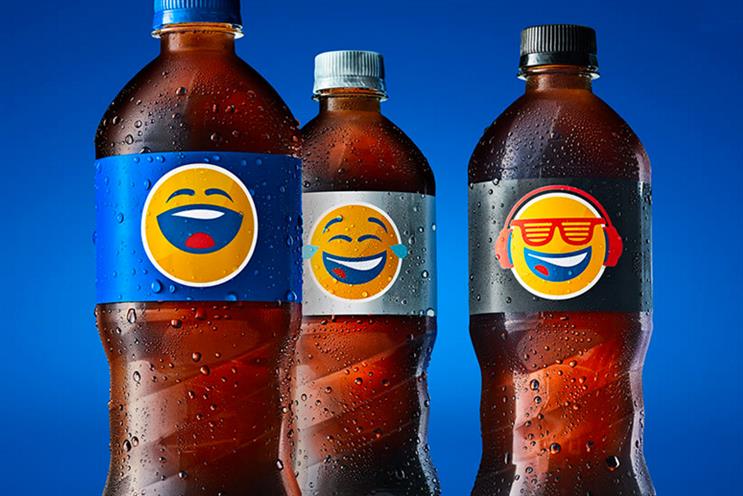Breaking news! Large soft drink company finds way of marketing within conversations, using sponsored Emoji stickers on Twitter.
Emoji’s are on-trend right now and it could be seen as a shrewd move by Pepsi to sponsor Emoji stickers. Emojis are a bit like hieroglyphics, pictures that depict a sentence. Basically it’s language, Pepsi are sponsoring language.
I love the idea that marketing has reached a point where it’s infiltrating the way a conversation works and what is said. I guess advertising has always done this though. Think "Does what it says on the tin", "Got your number", "Good things come to those who wait".
They help to navigate a conversation and can grasp an entire mood in a single statement. Well, now that single statement is a single image.
Marketing has reached a point where it’s infiltrating the way a conversation works and what is said.
When WTF became common parlance did we have more WTF moments? Did we show more outrage more regularly? I guess it’s the language that normally fits the environment, the old adage that Inuit’s have 50 words for snow because they are surrounded by it.
We should have 100 words for poor marketing that has done really well in research but lacks in any compelling idea at its core. Or a word for a group of people who very vocally backed Brexit only to vanish and hide now faced with the consequences.
Back to Emoji stickers, so what are they? They are essentially emoji’s that brands can pay Twitter to pop on their Emoji keyboard, I like this as we can reflect our real world in our tweeting habits.
I always loved the part in ET where the camera pans through the kitchen to reveal all the brands that live in our world (Coke, Nestle, Kellogg's, Sony). It's relatable, doesn’t feel as though we are being sold to, and at the end of the day a can of coke looks pretty good right?
Our nine-year-old at home loves Bitmoji. One of her favourites is dabbing. It’s a dance move. However, it’s found a place in our texting conversation, it's somewhere between Fo Sho and Laters. Again, this may seem like a foreign language but it’s subtleties are up there with the 50 words for snow.
As long the work enables language and doesn’t restrict it, then it’s a good thing right? The only way I can see this being bad is if it restricts.
Imagine a world where a big soft drink company could sponsor actual language: "Sorry, you can’t say "train station" as it’s owned by SoftDrink.inc." Don't think that's right? "Right is now the property of SoftDrink.inc, our lawyers will be in touch".
Ross Neil is WCRS' executive creative director.


